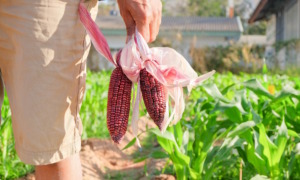OUR GRANT OPPORTUNITIES: Youth Today’s grant listings are carefully curated for our subscribers working in youth-related industries. Subscribers will find local, regional, state and national grant opportunities.
THIS GRANT’S FOCUS: Community Health & Well-being, Equity, Economic/Social Development, Data/Research
Deadline: Mar. 18, 2025
“This call for proposals (CFP) invites eligible nonprofit organizations in the U.S. to apply for a grant to collect, analyze, and use data to address inequities in the physical, economic, and social conditions of a place. Improving these conditions is key to achieving health equity where health is no longer a privilege, but a right. Structural racism is one of the leading barriers that results in inequities in conditions within and across communities. The Robert Wood Johnson Foundation (RWJF) expects to award up to 30 grants of $50,000 each, with a period of performance of nine months. The Urban Institute, as the national coordinating center for this program, is collaborating with RWJF on program design, grantee support, and communications. The goals of the Local Data for Equitable Communities grant program are to:
- Inform public policy and improve the physical, social, and economic conditions of places: Data can be a transformational tool for community-based nonprofits to answer questions directly relevant to on-the-ground efforts to improve the physical, social, or economic conditions of a place. With key data in hand, nonprofits can inform public discourse, resulting in program and policy solutions that reduce health inequities.
- Build local capacity to use data for action: A community with data capacity is one where people can access and use data to better understand and improve outcomes where they live. This grant program supports community organizations to collect, analyze, and use data about a locally relevant and timely issue. As they do so, their capacity to use and apply data is strengthened, which leads to a stronger influence in their communities to achieve important community-driven goals.
- Strengthen the use of equitable data practices: Equity should be a leading consideration in how data are collected and, ultimately, in who gets to interpret, disseminate, and leverage data to take action. People most affected by racial, economic, and geographic inequities in health and wellbeing need to be able to access, interpret, and contribute data to assess structural inequities in their communities. They should have the opportunity to participate in decisionmaking about how to address barriers and design solutions to improve healthy equity based on that data.
- Document successful practices for more communities to learn from and adapt: This grant program funds organizations to address immediate local needs and conditions, informed by data relevant to project questions that are locally determined. The program is designed such that resulting projects will create and disseminate a diverse and innovative set of practices that will be relevant and useful to other places.”
Funder: Robert Wood Johnson Foundation
Eligibility: “Applicants must be nonprofit organizations that are tax-exempt under Section 501(c)(3) or Section 501(c)(4) of the Internal Revenue Code and are not private foundations or non-functionally integrated Type III supporting organizations. Universities, whether public or private, are ineligible to apply, but are eligible to partner with an applicant that is a Section 501(c)(3) or Section 501(c)(4) organization. Organizations that are fiscally sponsored by an eligible tax-exempt 501(c)3 or 501(c)4 organization are also eligible. The fiscal sponsor cannot be a university, whether public or private. Applicant organizations must be based in the U.S. or its territories. Applicants must focus their projects on local geographies, such as neighborhoods, cities, counties, metropolitan areas, or tribal areas.”
Amount: Up to $50,000
Contact: Link →
Related Report: HHS should help states address barriers to using federal funds for programs serving youth transitioning to adulthood
>>> CLICK HERE to see all of Youth Today’s GRANT LISTINGS































